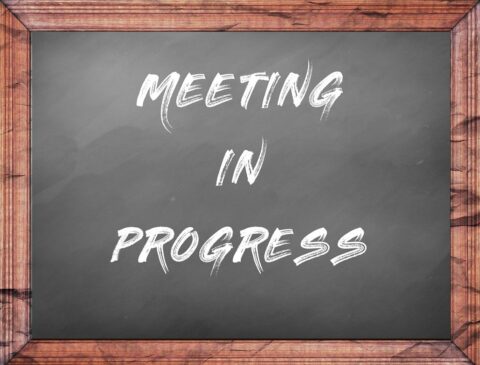No—this is not an oxymoron! And yes, the “HR” stands for Human Resources, as in the department in our organizations that handles the difficult personnel management issues.
The book which inspired this blog is Biblical HR: Applying Eternal Truths to Everyday Work by Brett Billups. All I can say is you MUST buy this book whether or not you are an HR person in an organization. It is so applicable to our everyday lives and relationships, in all settings.
It has been on my shelf for some time now, and I don’t know when I bought it or why it jumped into my hands just a few days ago, but it is so timely. I have 3 mediations with which I have been involved recently that included major HR issues as part of the controversy.
And frankly, this book applies to the marriage cases with which I am working as well.
OK, I confess. I prayed for help from the Lord on these cases. And my prayer warriors who cover me have also been praying. So, don’t tell me the Lord doesn’t listen. And provide books.
Now, here’s the problem – the copyright instructions are very limited. No reproduction except for brief quotations in critical reviews or articles. OK, so I am going to give you just one endorsement out of several which sums it up well –
“WOW—as a former corporate HR professional, business leader, and small business owner, I can only wish that I had Biblical HR as a resource much earlier in my career. I am so grateful for this masterfully written work by my dear friend and brother, Brett Billups. As a man of conviction who lives out his faith, Brett not only provides us with sound biblical truth, the practical insights for application that he offers as a seasoned HR practitioner are priceless. In the age of an increasingly complex world of work, the truths in this book are so timely, and yet the principles here within are so timeless. Irrespective of your employment status, whether you are in a position of leadership and authority in your workplace or not—or even employed at all—Biblical HR is for you!” — Keith Daniels, Directional Pastor, Member & Secretary of the Board of Trustees – The Southern Baptist Theological Seminary, Louisville, KY
On top of that, I went to the copyright date – 2022 – covering COVID and current political climates time periods. It is true that his wisdom in this book is timeless.
In his chapter on ‘Conflict Resolution’, I found myself nodding my head in constant agreement with the truths he shared – about conflicts in which I am directly involved and those I am attempting to resolve between two or more parties.
To prove the point – and to hopefully stay within the bounds of the copyright, let me illustrate his wisdom:
With regard to conflicts in which I am involved, he addresses conflicts, with believers or unbelievers, absolutely correctly – the first response should be to die to ourselves and our own desires looking within our own hearts for any faults, even if the other party has “done evil.”
It is the first step I have to take in mediations and the first step I personally need to take as well.
But he also addresses the need to recognize our first human reaction is to stand up for ourselves and the wrongs done to us. So wisely, he points out that there is a time and a place to do those things (and yes, in a humble and godly manner), but that should not be our first or initial response.
All I can say to his wisdom is “Amen and Amen”. He is so right.
But he does not leave us in limbo with regard to action. He offers very practical, godly steps.
I can only summarize these – and that is why I am telling you to get this book – they are excellently fleshed out and explained there along with the scripture:
- He starts with the “Glorify God” step I learned in my training – as he shares it, we are to pray for God to reveal any fault that we should assume. I can tell you that takes humility and we spend lots of time in mediations working on that step.
- The next step also matches my training. He says “ask for forgiveness” and in my training, I learned to help people “Get the log out of their own eye” before they went looking for the speck in the other’s eye. Matthew 7:3-5
- His 3rd step is to “seek to restore” which totally matches my training through Peacemaker by Ken Sande. We learned “gently restore” as the step. That involved listening well to the other person and learning what happened in their own words and how it impacted them – that is necessary in order to make a genuine confession of how we have harmed them. This is something that is needed before one can restore the relationship. Billups talks about checking to see if your actions resulted in a loss to another, financially or otherwise. Then it is our responsibility to repair the damage as far as we are able. He says even more – all in line with Ken Sande’s teaching.
- I love his title of the 4th step “be gracious”. He hits on looking for the opportunity to share or demonstrate the gospel, extending grace and mercy.
- Important is his next reminder to keep the ultimate goal in mind as Christ did in Matthew 26: 51-53, 27: 13-14 and Mark 15:4-5.
- A unique next step that I had never identified but which is hugely important is the advice to not take on any responsibility that is not ours. Instead of assuming responsibility for the conflict because you are thinking you can help, we need to realize that another person’s reaction in the face of conflict may be to deflect their own responsibility and potentially accuse us. We have to properly assess what our role should be.
- Another unique, but important item that Billups adds is that we need to defend ourselves appropriately. Isn’t that a major item in our worldly-focused climate today? I loved his point that we are to “humbly state” truth and our own responsibility but “denounce false accusations” using supportive facts and data as much as possible. His advice to seek God’s glory and not our own is an important one to keep up front all the way through, but particularly when being accused. Again, his wisdom – pray and seek God’s justice about the matter instead of getting focused on what is best for ourselves or things that will protect us. Great words: “God is a just judge. Rest in His hands.”
- His last point is one that it took me so, so long to learn – and I still forget it at times. As he says it, you must be willing to live with unresolved conflict. Of course, this is after we have done everything in our power, searched our own hearts and know we have done our part. His advice is to “move on” but not as the world does. His wisdom is so good here – he says we are not released from the command to love our enemies. We are to continue to pray for their hearts (Romans 12:20) and then accept that it is out of our hands. This is such good advice. As he reminds us, we must trust “the final resolution to the One who judges righteously” (1 Peter 2:23)
I love his final wrap-up words which I would apply to the whole of the advice above – “Focus on your work and the work of the Kingdom.”
I hope this walk-through of dealing with conflict has blessed you as his words blessed me. It is applicable to ALL of our relationships. And so needed in our world today!





